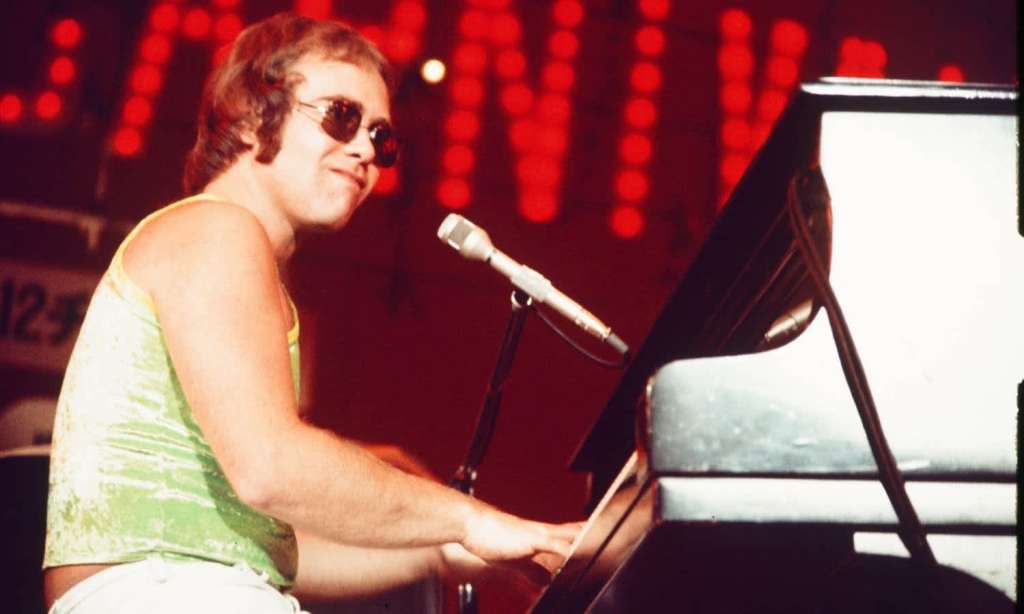In Apple TV+’s new eight-part documentary series, music is examined against the political and cultural backdrop of the time in order to better understand why the tunes produced in 1971 went on to be some of history’s most enduring. The series examines the most iconic artists and songs that we still listen to 50 years later, including The Rolling Stones, Aretha Franklin, Bob Marley, Marvin Gaye, The Who, Joni Mitchell, Lou Reed and more.
1971: The Year That Music Changed Everything, comes from the same filmmakers that brought us Amy and the Banksy documentary Exit Through the Gift Shop, with Asif Kapadia serving as the series director and executive producer role, the latter of which he shares with James Gay-Rees, David Joseph and Adam Barker.
Chris King is both the docu-series’ editor and executive producer while Danielle Peck is the series producer who shared directing duties with James Rogan for the eight episodes. The series is based on the book, 1971: Never a Dull Moment by David Hepworth.
In an interview with Variety, Kapadia explained that the 1970s feel more relevant to where the world is today than, say, the ’60s, saying, “I can’t pretend to say it was my idea that we should do it because it’s the ‘best year ever.’ I’m not a fan of that. I think that’ll be down to the audience to react.
“But there’s something to do with the ‘60s being killed off and making the turning point into the ‘70s that feels more like where we are now. Because the ‘60s don’t feel like the way we’re living right now. The beginning of the ‘70s leads to everything that we’re dealing with now and the artists we’re listening to now.”
Added Gay-Rees, “When we first engaged with David Hepworth, who wrote the book 1971: Never a Dull Moment, I remember him giving me the context of what was happening socially and politically that year, alongside which albums were coming out that year.
“It was a slightly jaw-dropping moment because the list just seemed to never end. I couldn’t believe that all those records came out of that one year; some of these months, alone, are iconic moments for music.”
For context, just some of the events that took place in 1971 included Charles Manson and his “family” being found guilty of the Tate-LaBianca murders; the Vietnam War continued to rage as did the Civil Rights movement; the Bangladesh Liberation War began; the Voting Age in the United States was lowered to 18 years old; The New York Times began publishing sections of the Pentagon Papers starting — revealing that US Government had been lying to the American People; Greenpeace and NASDAQ were officially born; and The Doors frontman Jim Morrison was found dead in Paris at the age of 27.
Said Gay-Rees, “Why did music respond so vividly to what was going on in the world then in a way that music simply doesn’t really do anymore?
“There’s obviously great music being made in the last 10, 20, 30, 40 years, but the music made in that particular year was a direct response to what was going on in society. And there was a real interplay between the two, and the music did in fact impact society, as well, as society impacting music. I don’t think that’s happened in that same way since then.”
As you might imagine, the team interviewed as many people as they could for the docuseries, to really shed light on the climate of the year 1971 and how it contributed to the creation of some of the world’s most-played music. According to the filmmakers, one artist, in particular, stood out to them, and that person was none other than Sir Elton John.
“The team would say that one of the most giving people was Elton John,” Kapadia said. “Because quite a few people maybe don’t remember it very well, but he was one of the people that was really open and remembers everything — and was really great and very giving.
“Elton John can remember literally sort of every yard and every step when he first arrived in Los Angeles in 1970 or ’71 — just an incredible memory for detail, and also a massive music knowledge and a brilliant sense of that spider’s web of influences,” Gay-Rees added.
“That was a really, really fascinating interview.”
1971: The Year That Music Changed Everything is now available on AppleTV+.
Read more stories from The Latch and subscribe to our email newsletter.







